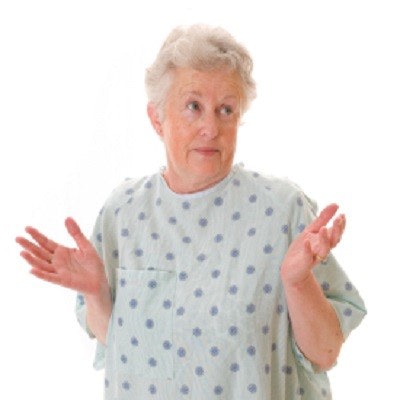
Many current cancer screening guidelines recommend against screening adults with less than 10 years of life expectancy. But clinicians often have difficulty communicating to elderly patients that screening isn't necessary anymore, according to two studies -- one published in the June issue of The Gerontologist and the other in the Journal of General Internal Medicine (JGIM) on May 14.
"As we gain more scientific evidence, cancer screening is shifting to be more tailored to an individual, and for the elderly that means don't screen if the patient really won't benefit from it," said lead author of both studies Dr. Nancy Schoenborn of Johns Hopkins University School of Medicine in a statement released by the university. "These new findings help us learn how we can better support clinicians and improve patient care when it comes to personalizing cancer screening."
For the Gerontologist study, Schoenborn and colleagues interviewed 28 physicians, certified registered nurse practitioners, and physician assistants, as well as 40 adults between the ages of 65 and 92, about their viewpoints on cancer screening discussions. The researchers found that both groups considered it important to frame discussions around stopping cancer screening in terms of risks and benefits and that patients should play an active role in the decision as to whether to stop screening (Gerontologist, June 2019, Vol. 59:S1, pp. S67-S76).
Most doctors stated that they didn't think it necessary to raise the issue of life expectancy in conversations about stopping cancer screening. But patients had mixed responses: Some wanted to hear about life expectancy, others thought it was acceptable not to bring it up, and a third group was against it.
"We'd like to continue to look in a larger population at preferred phrases to use in these discussions," Schoenborn said in the university statement. "There are still some challenges for clinicians learning how to talk about these things, and we want to encourage discussion."
The study published in JGIM investigated what types of physicians might be prescribing cancer screening exams to elderly patients, using mammography as the measure. The research included data from the 2011 National Health and Aging Trends Study on 2,041 women age 65 and over who had no history of breast cancer. Schoenborn's group explored how many of the women continued to have mammograms despite having a limited life expectancy and what type of practitioner ordered mammography for these patients.
The team found that 48% of the women underwent a screening mammogram during the study period, with a screening rate of 60.2% for women with a life expectancy of more than 10 years and 27% for women with a life expectancy of 10 years or less. The most common types of clinicians who referred women to mammography screening were those in internal medicine, family medicine, and obstetrics and gynecology, according to the researchers.
"If we already have a curriculum on communicating with patients about stopping cancer screening, then it's not that much added cost to disseminate that to specialists as well as primary care providers," Schoenborn concluded.




















